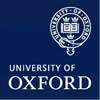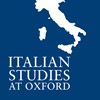
CfP
CALL FOR PAPERS
The Past, Present, and Future of Language Learning in Italy and Great Britain
The Case of English in Italy, and of Italian in Britain
Saturday, 9 November 2024
Pembroke College, University of Oxford
Organisers: Prof. Guido Bonsaver (University of Oxford), Dr Alessandro Carlucci (University of Bergen and University of Oxford)
Sponsored by the Association for the Study of Modern Italy (ASMI), the Faculty of Medieval and Modern Languages, University of Oxford, Italian Studies at Oxford (ISO), and the Society for Italian Studies (SIS)
Invited speakers: Prof. Monica Barni (Sapienza, University of Rome), Prof. Giovanni Iamartino (University of Milan, Co-convenor of HoLLT.net), Prof. Neil Kenny (FBA, University of Oxford)
Following on from the workshop on the same theme of 4 June 2024, the organisers are delighted to announce a one-day interdisciplinary conference to be held in Oxford.
Tracing the development of language learning and teaching (henceforth LLT) across time is important for two main reasons. Through a detailed diachronic analysis, we can look for historical trends in the learning of modern foreign languages and we can specify the relationship and correlations with other historical phenomena. We can thus answer questions such as how and to what extent LLT affects – and is in turn affected by – wider cultural, social and political developments in specific historical contexts. In addition to this, tracing the diachronic development of LLT can help us apply historical knowledge to our understanding of present and future challenges. The identification of trends and potential developments can help inform the interventions of policymakers and can guide all involved parties (from educational institutions to individual teachers, from academics to publishers and other providers of language-learning resources) in their response to the challenges of multilingualism in general and LLT in particular.
The learning of English in Italy and Italian in Britain offers a particularly representative case to explore the development of LLT and its links to cultural, social and political history. This dual case brings together two languages which, despite their different status, have had an exceptionally significant role as foreign languages. In the modern period, Italian continues to be widely perceived as a gateway to ‘classical learning, letters, music, arts, and humane accomplishments’ (Leathes Report, 1918: 20), whereas English establishes itself as the most practically useful language and spreads globally as an essential tool for social mobility and international communication. In twentieth-century Italy, in particular, English is perceived as the vehicle of a more inclusive form of modernity in comparison to French, which had traditionally been used by the country’s ruling groups and socio-cultural elites.
To this day, despite the significant amount of scholarship which has been devoted to the teaching of English in Italy and Italian in Britain, we have limited and discontinuous diachronic information about the number of students, teachers, courses, degrees, as well as about the actual knowledge and use of these languages in the two countries in question. This conference aims to attract current researchers in different subjects in order to provide an international forum for discussion, particularly in view of future research projects aimed at filling the gaps in our historical knowledge of LLT and at informing and shaping future policies in this area. We are seeking contributions from the fields of second language learning and teaching, English and Italian studies, as well as from historians interested in multilingualism and language learning as social and cultural phenomena, including historians of migration and Anglo-Italian relations. Relevant proposals from researchers in the sociology of language, language policy and language contact are also welcome.
If you would like to offer a paper, please send the organisers (at the email addresses below) a c200-word abstract of your proposed paper and a few lines about your academic expertise and affiliation. Deadline: Monday, 2 September 2024.
Please feel free to contact the organisers for further information prior to your submission.
alessandro.carlucci@mod-langs.ox.ac.uk


